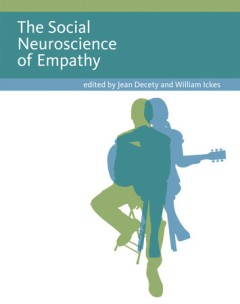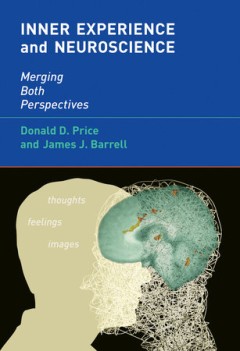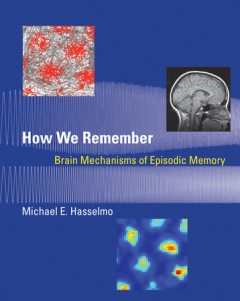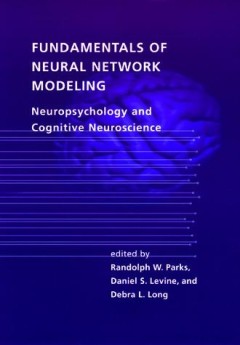Filter by

The rationality quotient :toward a test of rational thinking
How to assess critical aspects of cognitive functioning that are not measured by IQ tests: rational thinking skills.OCLC-licensed vendor bibliographic record.
- Edition
- -
- ISBN/ISSN
- 9780262336819
- Collation
- 1 online resource (xvii, 459 pages) :illustrations
- Series Title
- -
- Call Number
- -

Doing Indefinite Time
This open access book provides insights into the everyday lives of long-term prisoners in Switzerland who are labelled as ‘dangerous’ and are preventatively held in indefinite, probably lifelong, incarceration. It explores prisoners’ manifold ways of inhabiting the prison which can be used to challenge well established notions about the experience of imprisonment, such as ‘adaptation’…
- Edition
- 1
- ISBN/ISSN
- 978-3-031-12590-4
- Collation
- -
- Series Title
- Palgrave Studies in Prisons and Penology
- Call Number
- XIII, 353

Sex Differences in Reading and Math Test Scores of Children
This open access book examines why reading and math test scores for boys and girls have differed since the origins of testing in the United States. It details the pattern of differences that have remained largely unchanged for more than 100 years in the United States and worldwide. The book explores why boys have modestly larger math test score means than girls, and why girls have far larger re…
- Edition
- -
- ISBN/ISSN
- 978-3-031-41271-4
- Collation
- XII, 108
- Series Title
- -
- Call Number
- -

On the Power and Limits of Empathy
This book has two main objectives. The first is to identify and adequately describe the phenomenon of empathy. This essentially means offering a strong, reasoned and accurate description of the phenomenon of empathy in order to capture the essence of the empathic phenomenon and clearly distinguish it from other similar emotional phenomena such as sympathy or compassion The second part focuse…
- Edition
- -
- ISBN/ISSN
- 978-3-031-37521-7
- Collation
- XIV, 374
- Series Title
- -
- Call Number
- -

The Social Neuroscience of Empathy
"A Bradford book."In recent decades, empathy research has blossomed into a vibrant and multidisciplinary field of study. This text collects cross-disciplinary, cutting-edge work on human empathy from the perspectives of social, cognitive, developmental and clinincal psychology and cognitive/affective neuroscience.OCLC-licensed vendor bibliographic record.
- Edition
- -
- ISBN/ISSN
- 9780262255295
- Collation
- 1 online resource (ix, 255 pages) :illustrations.
- Series Title
- -
- Call Number
- -

Applied psychology : an introduction to the principles and practice of education
This volume has been prepared at the request of many teachers and Inspectors that I should publish some of my lec¬ tures on the Psychology, Principles and Practice of Education, which have been given from time to time before Teachers’ Asso¬ ciations. It was urged that though there are many excellent books on general Psychology, there is still room for one which more directly meets the needs…
- Edition
- -
- ISBN/ISSN
- 748897951
- Collation
- thomasfishercanadiana; thomasfisher; toronto
- Series Title
- -
- Call Number
- OISE 00031

Inner Experience and Neuroscience: Merging Both Perspectives
"A Bradford Book."A proposal for merging a science of human consciousness with neuroscience and psychology. The study of consciousness has advanced rapidly over the last two decades. And yet there is no clear path to creating models for a direct science of human experience or for integrating its insights with those of neuroscience, psychology, and philosophy. In Inner Experience and Neuroscienc…
- Edition
- -
- ISBN/ISSN
- 9780262305204
- Collation
- 1 online resource (x, 345 pages, 2 unnumbered pages of plates) :illustrations (some color)
- Series Title
- -
- Call Number
- -

How We Remember: Brain Mechanisms of Episodic Memory
Episodic memory proves essential for daily function, allowing us to remember where we parked the car, what time we walked the dog, or what a friend said earlier. In this book, Hasselmo presents a new model describing the brain mechanisms for encoding and remembering an episode as a spatiotemporal trajectory.OCLC-licensed vendor bibliographic record.
- Edition
- -
- ISBN/ISSN
- 9780262298230
- Collation
- 1 online resource (xii, 366 pages) :illustrations (some color)
- Series Title
- -
- Call Number
- -

Metareasoning: Thinking about Thinking
This text offers a simple model of reasoning about reason as a framework for its discussions. Following this framework, the contributors consider meta-level control of computational activities, introspective monitoring, distributed meta-reasoning, and, putting all these aspects of meta- reasoning together.OCLC-licensed vendor bibliographic record.
- Edition
- -
- ISBN/ISSN
- 9780262295284
- Collation
- 1 online resource (vi, 340 pages) :illustrations
- Series Title
- -
- Call Number
- -

Fundamentals of neural network modeling : neuropsychology and cognitive neuro…
Over the past few years, computer modeling has become more prevalent in the clinical sciences as an alternative to traditional symbol-processing models. This book provides an introduction to the neural network modeling of complex cognitive and neuropsychological processes. It is intended to make the neural network approach accessible to practicing neuropsychologists, psychologists, neurologists…
- Edition
- -
- ISBN/ISSN
- 0585108358
- Collation
- 1 online resource (xiii, 428 pages) : illustrations.
- Series Title
- -
- Call Number
- 001 FUN
 Computer Science, Information & General Works
Computer Science, Information & General Works  Philosophy & Psychology
Philosophy & Psychology  Religion
Religion  Social Sciences
Social Sciences  Language
Language  Pure Science
Pure Science  Applied Sciences
Applied Sciences  Art & Recreation
Art & Recreation  Literature
Literature  History & Geography
History & Geography